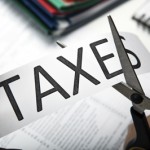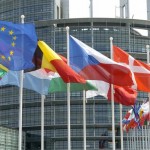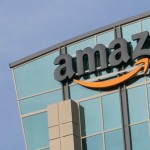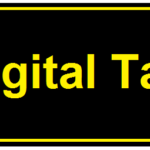European Commission finds Luxembourg gave illegal tax benefits
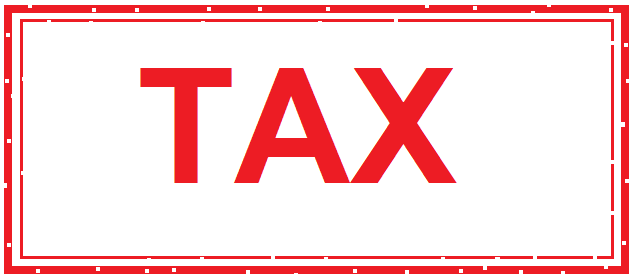
The European Commission has found that Luxembourg allowed two Engie group companies to avoid paying taxes on almost all their profits for about a decade. This is illegal under EU State aid rules because it gives Engie an undue advantage. Luxembourg must now recover about €120 million in unpaid tax.
Commissioner Margrethe Vestager, in charge of competition policy, said “Luxembourg gave illegal tax benefits to Engie. Its tax rulings have endorsed two complex financing structures put in place by Engie that treat the same transaction in an inconsistent way, both as debt and as equity. This artificially reduced the company’s tax burden. As a result, Engie paid an effective corporate tax rate of 0.3% on certain profits in Luxembourg for about a decade. This selective tax treatment is illegal.”
Following an in-depth investigation launched in September 2016, the Commission concluded that two sets of tax rulings issued by Luxembourg have artificially lowered Engie’s tax burden in Luxembourg for about a decade, without any valid justification.
In 2008 and 2010, respectively, Engie implemented two complex intra-group financing structures for two Engie group companies in Luxembourg, Engie LNG Supply and Engie Treasury Management. These involved a triangular transaction between Engie LNG Supply and Engie Treasury Management, respectively, and two other Engie group companies in Luxembourg.
The Commission concluded that Luxembourg’s tax treatment of these financing structures did not reflect economic reality. Tax rulings issued by Luxembourg endorsed an inconsistent treatment of the same transaction both as debt and as equity. On this basis, the Commission concluded that the tax rulings granted a selective economic advantage to Engie by allowing the group to pay less tax than other companies subject to the same national tax rules. In fact, the rulings enabled Engie to avoid paying any tax on 99% of the profits generated by Engie LNG Supply and Engie Treasury Management in Luxembourg.
Details of the two structures
The Commission decision concerns Luxembourg’s tax treatment of the profits made by two companies in the Engie group, namely Engie LNG Supply (whichbuys, sells and trades liquefied natural gas and related products in Luxembourg) and Engie Treasury Management (which manages internal financing within the Engie group).
Both are Luxembourg-incorporated companies that are fully-owned by the Engie group and ultimately controlled by Engie S.A. in France.
In 2008, Engie put in place a complex hybrid convertible loan structure between three Engie group companies. This triangular structure financed Engie LNG Supply’s acquisition of Engie’s existing gas trading business in Luxembourg. In particular:
- The financing was provided by Engie LNG Holding to Engie LNG Supply via an intermediary.
- Engie LNG Supply treated this transaction as a debt: it made significant deductions from its taxable profits, as if it owed interest under a loan. These deductions accounted for 99% of Engie LNG Supply’s profits.
- However, no payments were actually made to the intermediary or Engie LNG Holding.
- Instead, these profits were parked in Engie LNG Supply until Engie decided to convert the loan.
- At that moment, the intermediary received these parked profits in the form of shares, which they would then pass on to Engie LNG Holding.
- Engie LNG Holding then cancelled these shares to receive in cash the profits made by Engie LNG Supply.
This structure enabled the treatment of the same financing both as debt (from the perspective of Engie LNG Supply) and as an investment in return for shares (from the perspective of Engie LNG Holding). As a result, LNG Supply only paid taxes on about 1% of its profits. The remaining 99% were not taxed neither at the level of LNG Supply nor at the level of Engie LNG Holding, which received these profits in the form of shares. Income from shares is exempted from taxation under standard Luxembourg tax law (as it is in many other countries).
In other words, for about a decade, Engie’s effective tax rate on these profits in Luxembourg was less than 0.3%. This structure was endorsed by Luxembourg under a tax ruling granted in 2008 (which was amended a number of times).
In 2010, Engie put in place the same structure between Engie Treasury Management and Compagnie Européenne de Financement (C.E.F). This was also endorsed by Luxembourg under a separate tax ruling.
Commission assessment
The role of EU State aid control is to ensure that Member States do not give selected companies a better tax treatment than others, via tax rulings or otherwise.
The Commission’s State aid investigation concluded that the Luxembourg tax rulings gave Engie a significant competitive advantage in Luxembourg. It does not call into question the general tax regime of Luxembourg.
In particular, the Commission found that the tax rulings endorsed an inconsistent tax treatment of the same structure leading to non-taxation at all levels. Engie LNG Supply and Engie Treasury Management each significantly reduce their taxable profits in Luxembourg by deducting expenses similar to interest payments for a loan. At the same time, Engie LNG Holding and C.E.F. avoid paying any tax because Luxembourg tax rules exempt income from equity investments from taxation.
This is a more favourable treatment than under the standard Luxembourg tax rules, which exempt from taxation income received by a shareholder from its subsidiary, provided that income is in general taxed at the level of the subsidiary.
On this basis, the Commission concluded that the tax rulings issued by Luxembourg gave a selective advantage to the Engie group which could not be justified. Therefore, the Commission decision found that Luxembourg’s tax treatment of Engie endorsed by the tax rulings is illegal under EU State aid rules.
Recovery
As a matter of principle, EU State aid rules require that illegal State aid is recovered in order to remove the distortion of competition created by the aid. There are no fines under EU State aid rules and recovery does not penalise the company in question. It simply restores equal treatment with other companies.
In the case of LNG Supply, all income that has been transferred to Engie LNG Holding should have been taxed either as profits of Engie LNG Supply or profits of Engie LNG Holding at the standard Luxembourg corporate tax rate of around 29%. This means that Luxembourg must now recover about 120 million euros in unpaid tax from Engie, plus interest. It is for the Luxembourg tax authorities to determine the exact amount, based on the method set out in our decision.
In the case of the second company, Engie Treasury Management, its profits have not been channelled to C.E.F. yet. They will have to be taxed in line with standard Luxembourg tax rules, as soon as the loan is converted and they are paid to the holding company. This will be closely monitored by the Luxembourg authorities and the Commission.
Background on Engie
Engie (former GDF Suez) is a French electric utility company. Engie Treasury Management S.à.r.l., a treasury company, and Engie LNG Supply, S.A, a liquefied natural gas trading company, are both part of the Engie group. In November 2017, Total has signed an agreement with Engie to acquire its LNG business, including Engie LNG Supply.
Background on Commission tax State aid investigations
Tax rulings as such are not a problem under EU State aid rules, if they simply confirm that tax arrangements between companies within the same group comply with the relevant tax legislation. However, tax rulings that confer a selective tax advantage to specific companies can distort competition within the EU’s Single Market, in breach of EU State aid rules.
Since June 2013, the Commission has been investigating individual tax rulings of Member States under EU State aid rules. It extended this information inquiry to all Member States in December 2014. In October 2015, the Commission concluded that Luxembourg and the Netherlands had granted selective tax advantages to Fiat and Starbucks, respectively. In January 2016, the Commission concluded that selective tax advantages granted by Belgium to at least 35 multinationals, mainly from the EU, under its “excess profit” tax scheme are illegal under EU State aid rules. In August 2016, the Commission concluded that Ireland granted undue tax benefits of up to €13 billion to Apple. In October 2017, the Commission concluded that Luxembourg granted undue tax benefits of up to €250 million to Amazon.
The Commission also has an ongoing in-depth investigations concerning tax rulings issued by Luxembourg in favour of Mc Donald’s, by the Netherlands in favour of Inter IKEA, and one investigation concerning a tax scheme for multinationals in the United Kingdom.









